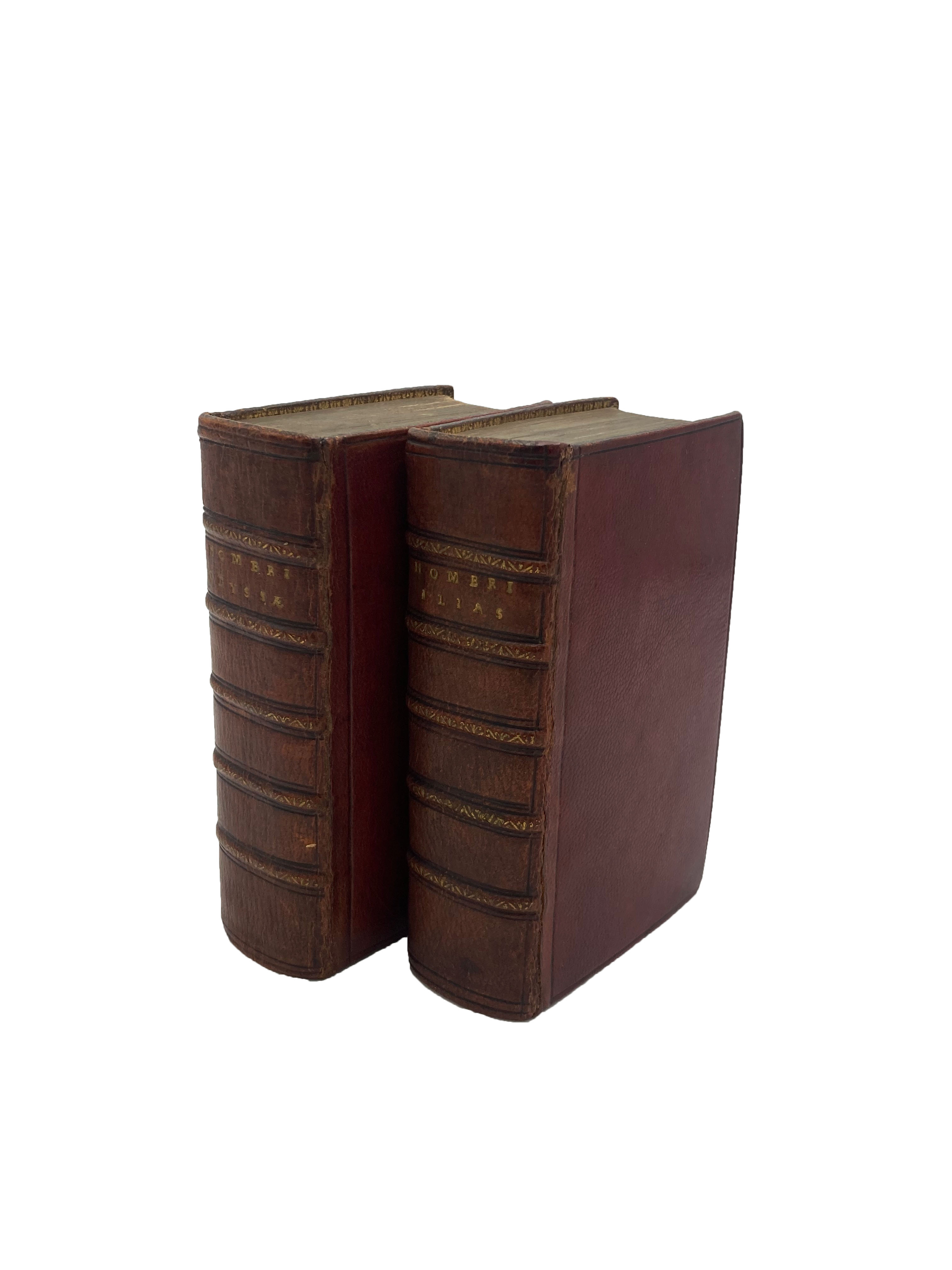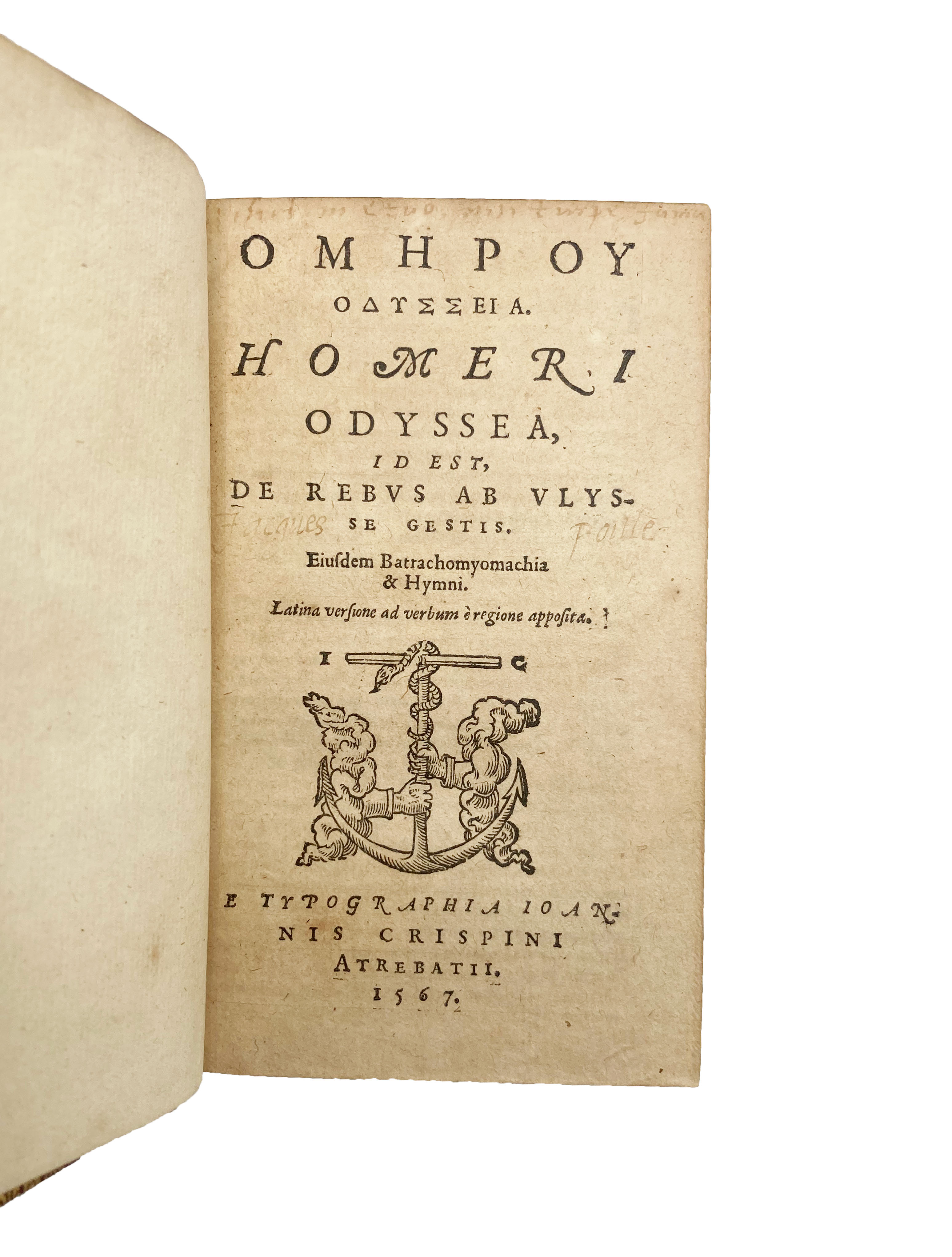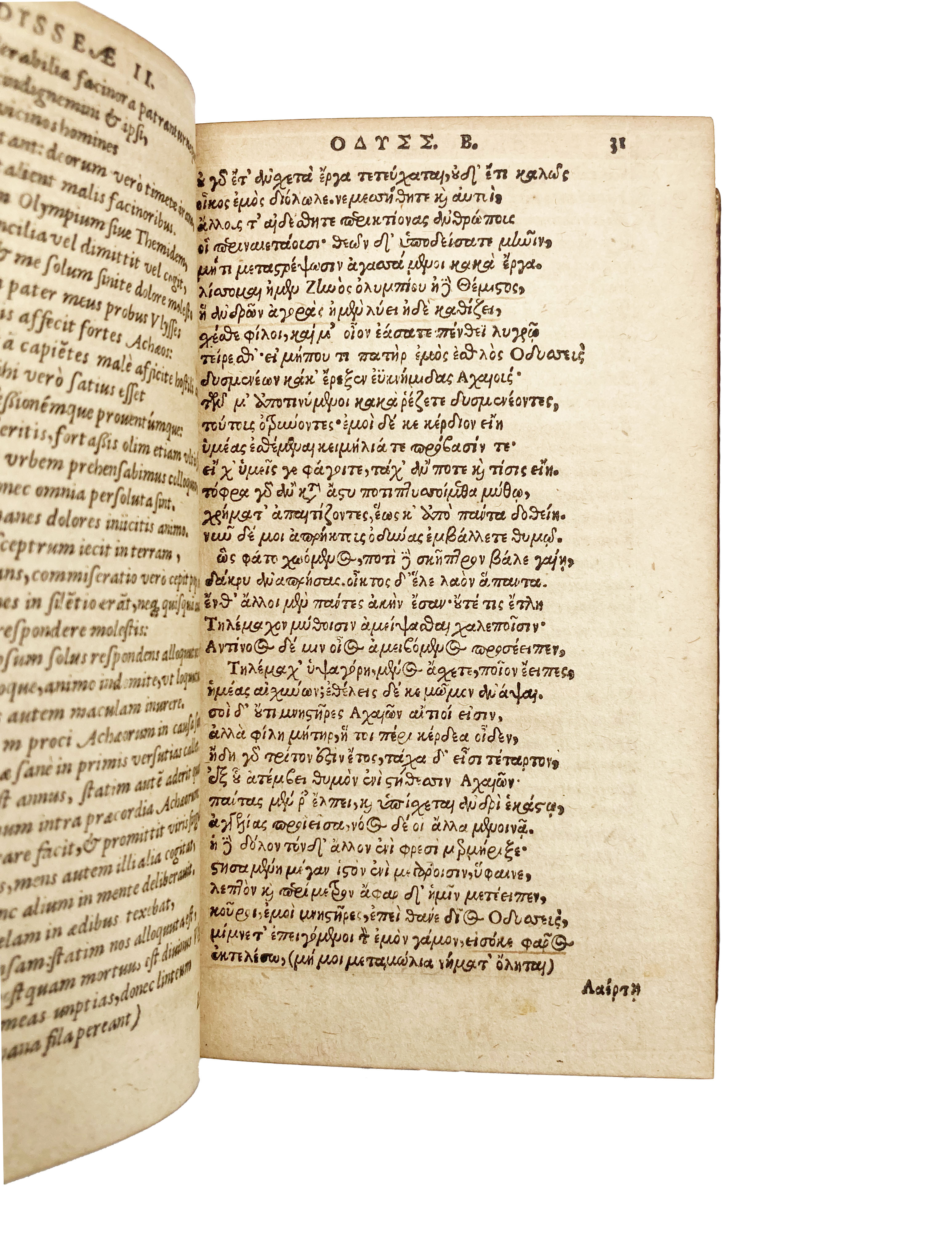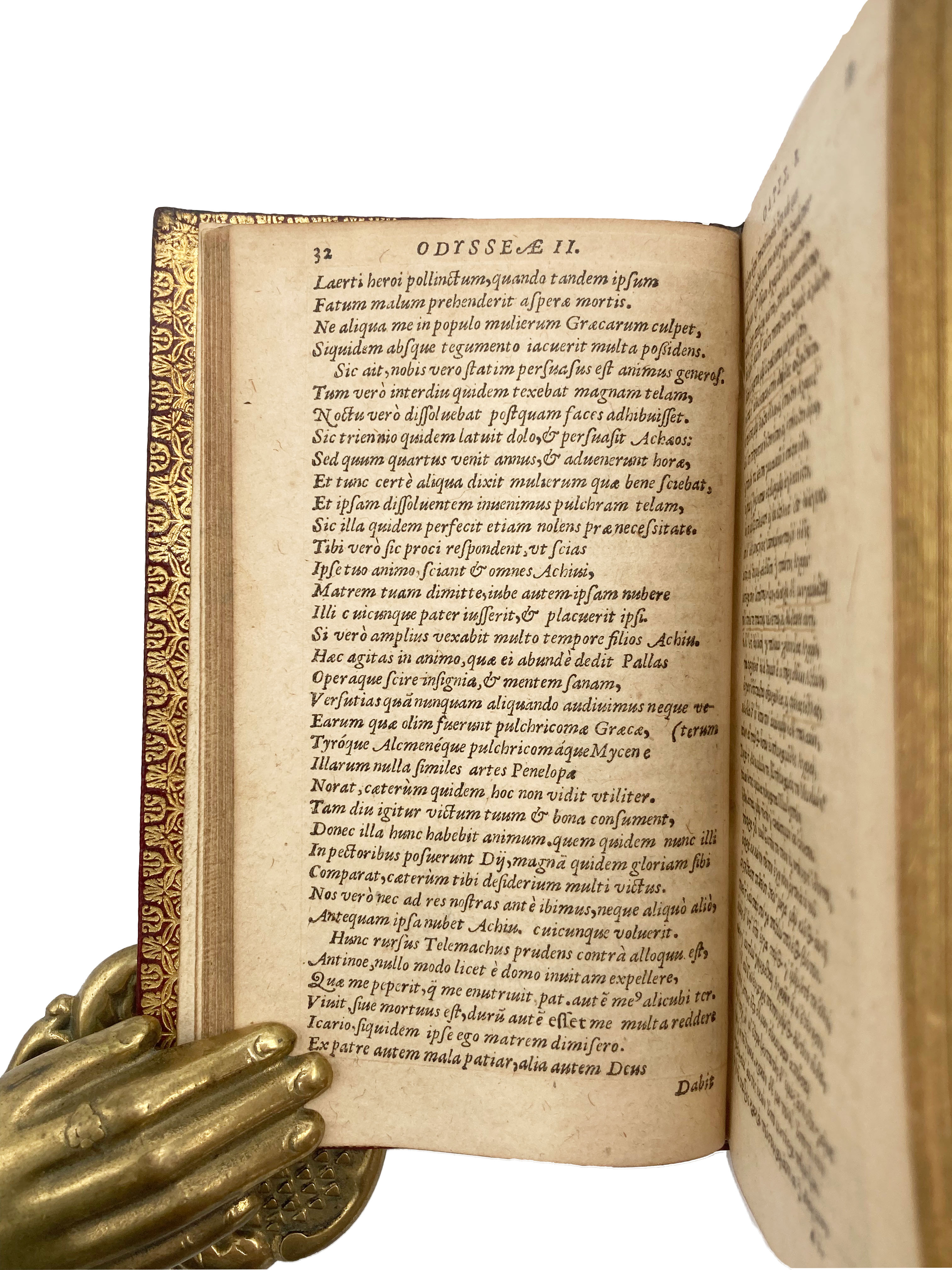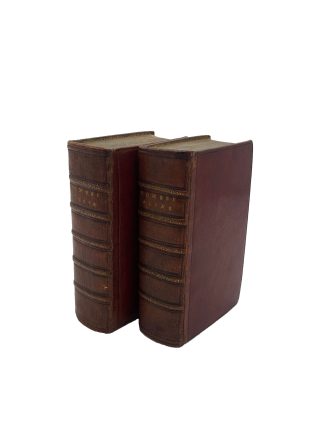HOMER
JACQUES POILLE-BRUNET COPY
Ilias. Id est, de rebus ad Troiam gestis. [and] Odyssea, id est de rebus ab Ulysse gestis.
[Geneva], Jean Crispin, I: 1560; II. 1567£7,950.00
16mo. 2 vols. I: pp. [7], 16-919, [15]; II: 2 parts in 1, separate titles and pagination, pp. [16], 839, [9], 79, [1]. Facing Latin and Greek texts, all pages in I ruled in red. Printer’s device to both titles and last of II, woodcut border to title of II, decorated initials and ornaments. Light age yellowing, occasional toning to II. Very good copies in c1800 crimson crushed morocco, blind ruled, crimson leather doublures with gilt edges to pastedowns, raised bands, spine gilt- lettered, marbled eps, a.e.g., spines a trifle sunned. Near contemporary autograph I. Thiballier and Greek device to first title, C17 autograph Jacques Poille with motto ‘Nihil metuo nisi
turpe fama’ to second, C19 ms ‘12 1265’ and ‘Catalogue de la Bibliothèque Brunet n.172. G.B.’ Occasional Greek ms marginalia to II, ‘example de Ch. Nodier, the distinguished French author, in pencil below.
A charming Latin-Greek pocket edition of Homer’s complete works, printed in Geneva. The ‘Odyssey’ was sometime in the library of the French humanist and poet Jacques Poille (1565-1623), and bears his motto and a few ms marginalia. Poille’s autograph is also present in other C16 Greek editions (e.g., at NYPL). This is the second impression with Budé’s Latin text. Later in the library of the great French bibliographer Jacques-Charles Brunet (1780-1867), and n.172 – ‘charmante exemplaire’ – in his London sale catalogue (1868).
Homer has remained an obscure figure in the history of Western poetry. Whilst his ‘Iliad’ and ‘Odyssey’ are dated to the C9-8BC, it is uncertain whether there ever was a blind bard of such genius or whether his persona came to be used to identify the output of a long- standing oral epic tradition, or indeed both. One of the most influential poems of Western civilisation, the ‘Iliad’ narrates the last years of the Greeks’ siege of Troy, focusing on the causes and consequences of Achilles’s ‘wrath’ – the opening word of the poem – after King Agamemnon seizes his concubine. The ‘Odyssey’ famously recounts the adventurous journey of Ulysses, King of Ithaca, to his native island after the end of the Trojan War, facing sirens, cyclops and many other perils. ‘Batrachomyomachia’ narrates a battle between Mice and Frogs, assisted by Zeus and other deities. The 33 ‘Hymns’ – attributed to, but not composed by, Homer – are each devoted to a different god or goddess, and written in a Greek language as archaic as Homer’s. At the end of this ed. are poetic works, edited by Neander, by Colluthus Thebaeus and Tryphiodorus Aegyptius, thematically connected with the Homeric material but rarely printed in the C16 and C17s.
From the library of the author George Brunet.
USTC 450281 and 415435; GLN 1655 and 1738; Dibdin I, 169: ‘Charming edition’; Brunet III, 271: ‘Edition aussi jolie que la précédente et également rechérchée: on en trouve difficilement des exemplaires bien conservés.’

